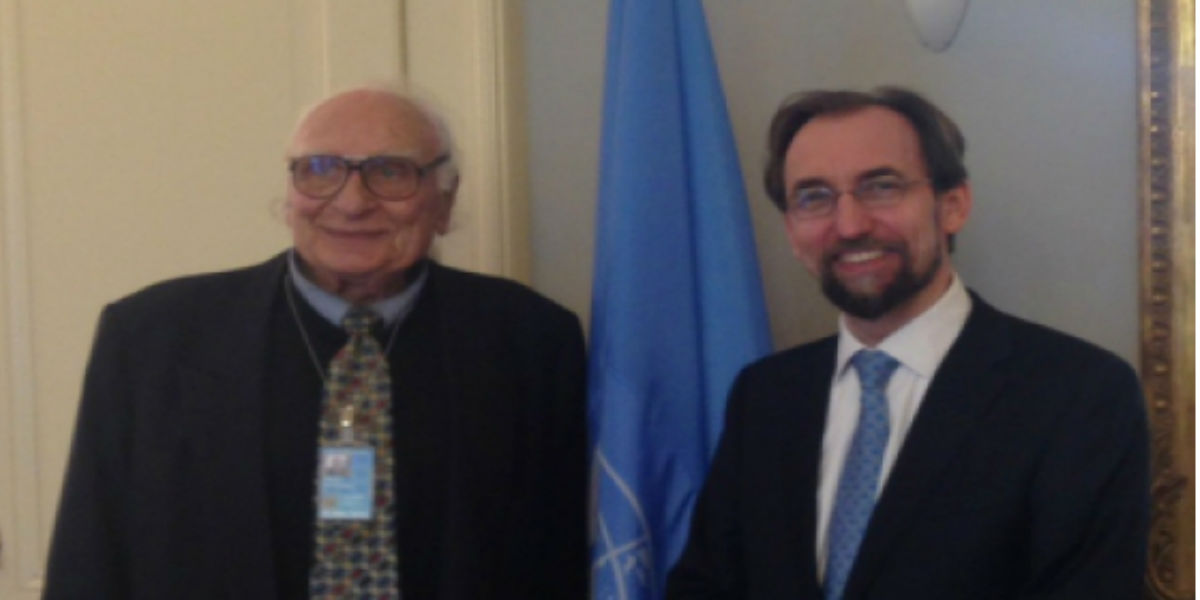Keynote speech by Zeid Ra’ad Al Hussein, United Nations High Commissioner for Human Rights, at the Assembly of States Parties to the Rome Statute of the International Criminal Court
Distinguished Colleagues,
President of the Assembly,
Madam President of the Court,
Madam Prosecutor,
Mr Registrar,
Chair of the Board of the Trust Fund for Victims
Excellencies,
We meet today in a long shadow cast, yet again, by some States Parties seeking to desert the Court, to desert victims of the most abominable international crimes, to desert all of us who worked so hard and for years on its behalf. If the State Parties, who apparently have been masquerading in recent years as countries devoted to criminal accountability, want to leave, then they should leave.
But we are not convinced their position is based entirely on principle. Quite the opposite: it appears to aim more at protecting their leaders from prosecution. Yet although the powerful may fear the Court, victims, everywhere, plead for its involvement. Victims of core crimes will struggle to understand why they are abandoned by these States – together with those which never acceded – and why they are made victim again, as the withdrawals deny their right to remedy and redress.
In the long view these States will boomerang back, as the Court is accepted by more and more States. Universal accession to the Court is a certainty; there is no substitute for the ICC. The African Court of Justice and Human Rights is deeply valuable. But even if it were to be given criminal jurisdiction over international crimes, the draft protocol specifically prohibits it from investigating “any serving AU Head of State or Government…or other senior state officials, based on their functions, during their tenure of office.” By withdrawing from the Rome Statute, leaders may shield themselves with immunities – but it will be at the cost of depriving their people of the protection of a unique and essential institution.
I urge this Assembly to stand firm on Article 27. While the Rome Statute provides for revisions, no change should be undertaken under threat of withdrawal, nor should any future amendment touch on the critical articles of the Statute. Specifically, the principle of the irrelevance of official capacity is prime, is existential for the Court.
Mr. President, I am saddened by this state of affairs. The African countries have been the backbone of this Court, and their leadership, especially in the early days, was exemplary. In fact, it was often majestic. We knew only an Africa of courage and adherence to principle. When, at the Rome conference, the US delegation, under pressure from Congress, launched a blistering attack against the independence of the Prosecutor, it produced a stunned silence among us. Not a sound was heard in the red room at the FAO headquarters, and it lasted a long time. Who was going to respond, and how? We looked at Norway, and they were staring down at their papers, scarcely moving. We turned anxiously to The Netherlands, and they were just staring at Norway! Finally, a flag went up, and we all swiveled in the direction of the delegate from Malawi, who calmly, elegantly and deftly sketched out lines of legal reasoning powerful enough to save the moment, to our delight and relief. That is the Africa we needed then, it is the Africa we need and want today, and I am pleased many African countries, including Botswana, Cote d’Ivoire, Nigeria, Malawi, Senegal, Tanzania, Zambia and Sierra Leone have signaled they will not leave.
Today’s challenges are not the first stern test faced by the Court, and they will not be the last. A new trend of isolationist and unprincipled leadership is building up across the world. Renewed attacks on the Court may well be in the offing. It will take all the nerve and resources of the truly committed States Parties to resist such challenges. Now is not the time to abandon the post. This is the time for resolve and strength.
To hold our international institutions together in defence of all victims of barbarity is on its own merits necessary enough. To keep this international system intact becomes even more pressing in the face of enormous pressures being heaped on it today – not least for small States who, for their security, need the companionship and protections provided by international law and by this Court.
Do not betray the victims, nor your own people. Stand by the Rome Statute and the Court. It may not be perfect, in design nor operation – like any other institution, or State for that matter. But altogether it is the best we have. The anarchist Elbert Hubbard, who died in 1915 in what, incidentally and ironically, today we would classify a war crime, noted, “progress comes from the intelligent use of experience.” To put an end to the calculated and unlawful destruction of human life through deterrence, by ridding the world of the impunity which feeds those crimes, remains the clearest fulfillment of Hubbard’s observation.
In a world that seems increasingly adrift, the turmoil yet to face humanity may be far greater than any challenge we have yet experienced. We face a choice. We can safeguard our societies by standing firm on the principles of justice which anchor this instituton. Or we can cast away the moorings of law laid down to save the world from horror – and turn away from the screams, as impunity overwhelms men, women and children in wave upon wave of violence.
On behalf of my Office and so many around the world, I urge you to summon your determination, place our collective shoulder behind this institution, and when the tensions become extreme, you will find all of us in the human rights community alongside you and this Court, our Court.
Read more here

